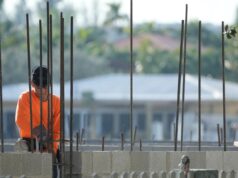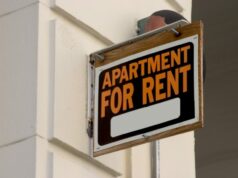Written By Justin Becker, Property Manager
There is no denying that right now, COVID-19 continues to affect the real-estate and rental market. If you’re a property manager or landlord of a multifamily housing community or complex, navigating these waters for the last eight months has been somewhat challenging.
Nevertheless, with no real end in sight, mass unemployment, fluctuation in available job opportunities, and the ongoing pandemic, it is still very difficult for tenants to be able to pay their rent and still afford their other monthly expenses.
Working with tenants who are experiencing economic hardships due to COVID-19 has been par for the course for these last couple of months. Moreover, with most property managers’ and landlords’ hands being essentially tied in regard to legally dealing with late rent payments or lack of payments, it is not too surprising that people are starting to get creative by finding proactive ways to deal with rent delinquencies.
Other than being more flexible, many property managers are not sure what else they can do during these uncertain times. That said, here are the five best ways to deal with rent delinquencies right now.
No. 1: Build Proactive Partnerships
One of the best things you can do as a property manager right now is to collaborate with your tenants to ease the pressure and address financial hardships.
Obviously, open lines of communication are key here, and looking for a win-win solution to the problem makes everyone walk away from negotiations feeling a little better. A prime example of building proactive landlord-tenant partnerships is deferring a portion of rent and establishing a reasonable repayment plan.
Alternatively, you can decide if a low rental rate moving forward is a feasible option for tenants affected by the ongoing pandemic. This may be a better option for property managers who have mobile homes for rent or those leasing single-family dwellings. Otherwise, if you have apartments for rent, you may need to consider if finding new tenants is more cost-effective in the long run.
No. 2: Invest in Tenant Loyalty
Yet another proactive option for dealing with rent delinquencies now is to invest in tenant loyalty.
For instance, if you know tenants and residents are struggling during this time but are still finding a way to make the rent, why not acknowledge that?
Try hosting appreciation events that get the community out and having fun (using, of course, the CDC guidelines). This allows your residents to relieve some stress but also breaks down walls between landlord and tenant.
Similarly, providing tenants with incentives to stay even after all of this is over, by giving a small rental credit or even a gift basket with needed supplies (masks, hand sanitizers, etc.), can lead to long-term retention. Such incentives can also be effective if you manage a community with mobile homes for sale. Here, homeowners can easily relocate their manufactured home once their lot-rent lease is up; thus, it pays to invest in these particular tenants especially.
No. 3: Paying Close Attention to Future Changes
It is also beneficial to keep your ear to the ground.
Apartment-eviction moratoriums did not spring up overnight, and there was definitely talk of what local and state governments might do before they happened.
Therefore, as more and more people are falling ill to COVID-19 and businesses continue to close their doors, paying closer attention to what the future of renting and leasing holds is crucial.
Furthermore, it is important to note that landlords and owners are not without a voice right now. Becoming actively involved, as much as you can, may just help save your business and keep roofs over your tenants’ heads.
So, stay apprised of relevant industry organizations and support those that will end up playing a role in how things look, legislatively speaking, and moving forward.
No. 4: Offer Job Postings
Along those same lines, if you know of potential job openings or industries that are hiring during COVID-19, why not share it with your tenants?
There is a whole host of employment opportunities online for remote workers, essential workers, and healthcare providers. So, if you stumble upon jobs that are perfect for any of your unemployed residents, it might be worth the mention.
And, since you are still actively keeping lines of communication open, you can send job-posting emails, as well as adding a section to your website page for local employment opportunities. In fact, little things like this will help your tenants feel like they are not alone in this and will help to foster positive relationships within the community.
No. 5: Provide Assistance Information
Making it easier for your tenants and residents to get in touch with agencies that are providing much-needed assistance is another way to make a difference.
Helping your residents secure food, homeschooling supplies, affordable medications, cleaning supplies, utility-payment assistance, and so on makes their financial responsibilities a little easier to manage.
This, in turn, is likely to increase the chances that your tenants or residents will be able to pay rent or adhere to their new rental agreement and payment arrangements. Leasing-office staff can help take it a step further by helping to set up appointments with delinquent residents so they can contact the necessary parties via phone with a property management team member.
Remember, at the end of the day, you and your tenants are truly a community; thus, working together in this manner should not be difficult because when your tenants are good, by extension, so are you.
Likewise, you may even want to consider partnering with local charities and non-profit organizations if you know a large sector of your community could benefit. For example, if you have several tenants that are veterans or many residents with kids, then it does not hurt to see what is available in the way of assistance for them right now.
Bonus suggestion: Early-Payment Raffles
Lastly, a bonus suggestion that property managers and landlords may want to consider is hosting early-payment raffles.
This is a great way to show appreciation to tenants that are still meeting their financial obligations. Moreover, early-payment raffles can be a wonderful incentive for people who are torn between paying rent in full or allocating a portion of those funds to something else. Plus, the entire raffle program can be done without requiring anything additional from your residents or making management team members’ jobs harder.
Everyone that pays a month in advance will automatically be entered into a raffle each month to receive money off the following month’s rent. What’s more, you can up the stakes by offering anyone who pays two months’ rent upfront a guaranteed $100.00 off their rent the next month.
Final Thought on Rent Delinquencies
Real estate or rental housing is fundamentally a relationship business, even in the midst of an ongoing pandemic.
While no one can truly predict the future, people need housing. As a result, looking for viable or proactive solutions to keeping people in their homes is what matters now. That said, property managers or landlords also have financial obligations to meet and their own housing costs.
So, it is imperative that we all work together to weather the storm. Through effective communication and landlord-tenant collaboration, collective anxiety and distrust can be diffused. By following these suggestions mentioned above, you can help curate solutions that will bridge the shutdown, which means landlord-tenant relationships ultimately can be preserved, and on-time rental payments will no longer be a thing of the past.
About the author:
Justin Becker is a property owner in the state of Michigan and has a passion for managing communities. He owns apartment complexes and mobile home communities, and has been writing his own blogs for his properties for several years.
Click Here To View The Original Article On Rental Housing Journal











